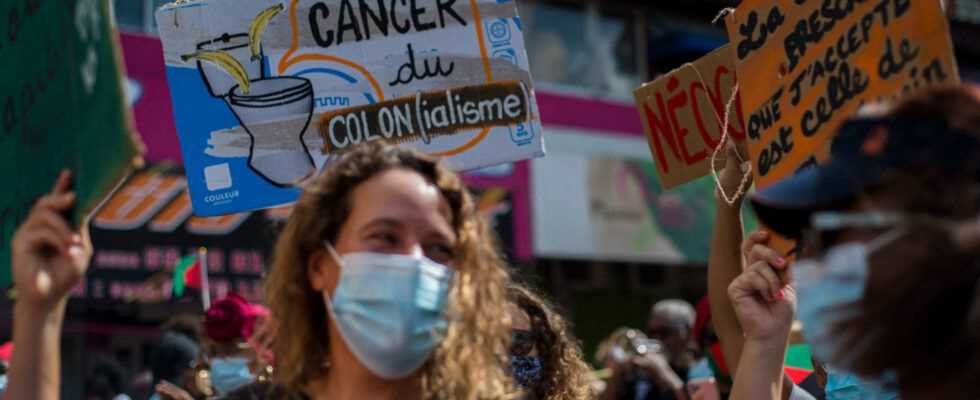Prostate cancers linked to exposure to chlordecone, a pesticide widely used for decades in the West Indies, are now recognized as an occupational disease, according to a decree published in the Official Journal on Wednesday. “The term ‘pesticides’ refers to products for agricultural use and products intended for the maintenance of green spaces (phytosanitary products or plant protection products) as well as biocides and veterinary antiparasitics, whether or not they are authorized at the time of demand “, according to the decree.
Facilitate the compensation of victims
The work usually exposing to pesticides is carried out “during the handling or the use of these products, by contact or by inhalation”, “by contact with the crops, surfaces, treated animals or during the maintenance of the machines intended. to the application of pesticides “, specifies the text. This measure, intended to facilitate compensation for victims, is part of a series of actions carried out by the State in this extremely sensitive issue for years in the West Indies and described as an “environmental scandal” by President Emmanuel Macron.
Chlordecone was authorized between 1972 and 1993 in the banana plantations of the Antilles and infiltrated the soils for hundreds of years, polluting water and agricultural production, while its toxicity and its persistent power in the environment had been known since the 1960s. .
Several necessary conditions
The decree published on Wednesday was announced in the fall by the Minister of Agriculture Julien Denormandie. It opens to the farmers concerned a fund created in 2020 and intended to compensate people with diseases linked to pesticides. In detail, all farmers or agricultural employees will be able to apply for this status on two conditions: that they have worked for at least ten years in contact with chlordecone, and that less than forty years have elapsed between their last exposure and the diagnosis of Prostate cancer.
These are the “durations generally accepted for this type of cancer”, recently explained the Ministry of Agriculture. People exposed under ten years old will still be able to make a request at the level of a regional commission, he said. The government has refrained from estimating how many people could be affected by this compensation. He also did not advance on the total amount.
“It will depend on the number of files that will be filed,” said the ministry, adding that the decree also made it possible to compensate children exposed during pregnancy. “We cannot prejudge the number of victims upstream,” he insisted, indicating that at the individual level, compensation would represent between 1,000 and 19,000 euros per year for a farmer. More than 90% of the adult population in Guadeloupe and Martinique is currently contaminated with chlordecone, according to Public Health France.
